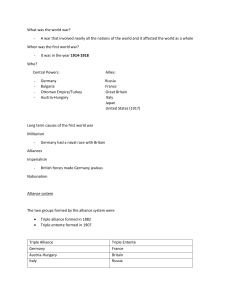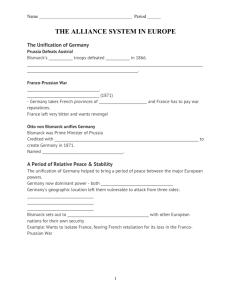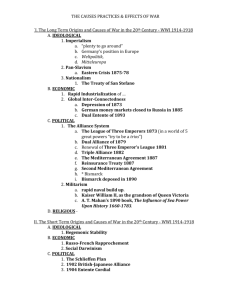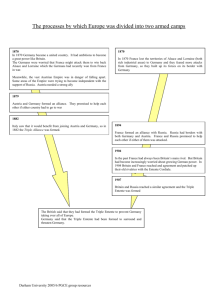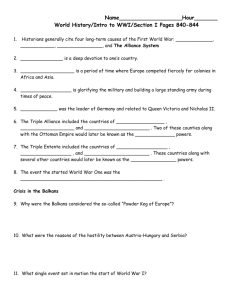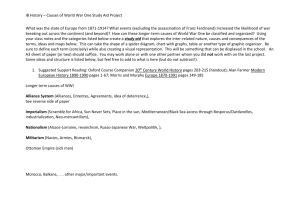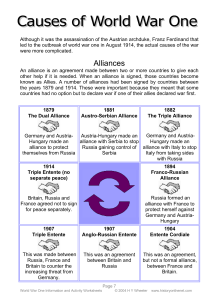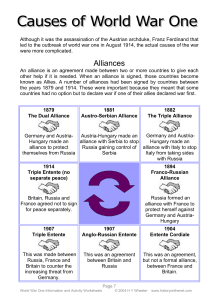Alliance System
advertisement
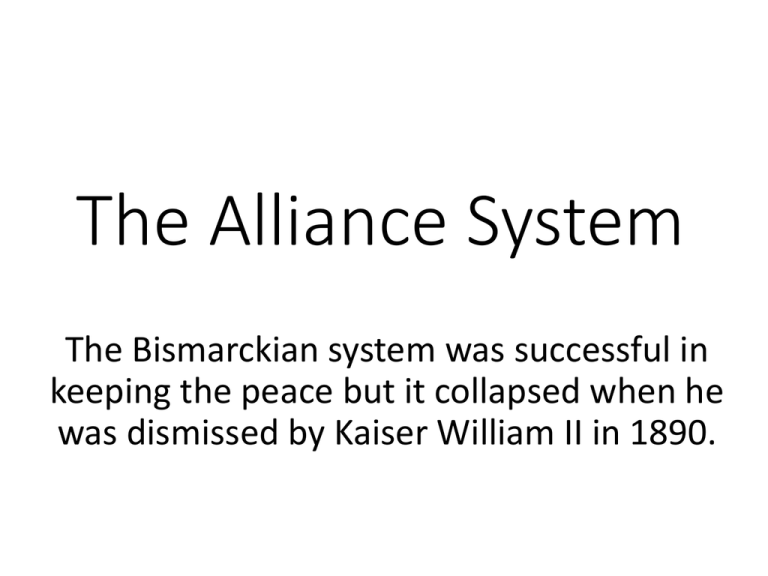
The Alliance System The Bismarckian system was successful in keeping the peace but it collapsed when he was dismissed by Kaiser William II in 1890. • Three Emperors’ League (1873): Bismarck formed an alliance between Germany, Austria-Hungary, and Russia to combat the radical and nationalist movements. It collapse following the Russo-Ottoman War of 1877-1878 • Central Powers (1879): To deter French revenge following the Franco-Prussia war, Bismarck established a military alliance with Austria-Hungary • Triple Alliance (1882): Italian rage following France’s seizure of Tunisia led Italy to join with Germany and Austria-Hungary • Bismarck made sure to maintain good relations with both of France’s possible allies • Britain by not advocating German imperialism in Africa, • Russia by negotiating the 1887 Reinsurance Treaty • Dual Alliance (1894): Following the dismissal of Bismarck, France was able to court Russia by extending military and industrial loans which soon led to the formation of the Dual Alliance • Ethnic connections between Germany and Britain were undermined by economic competition as Germany industrialized and by aggressive acts of the Kaiser. • The Kaiser’s plan to expand Germany’s navy made the British very nervous • As a result, Britain recognized the need for alliances • Got on better terms with the U.S. • Signed a treaty with Japan in 1902 • Agreed to an entente with France in 1904 • Entente Cordiale (1904): the peaceful agreement over control of the Sudan (Fashoda Affair) between Britain and France laid the foundation to the Entente Cordiale • Triple Entente (1907): Britain and Russia settled differences over spheres of influence in Persia and China which completed the Triple Entente.
